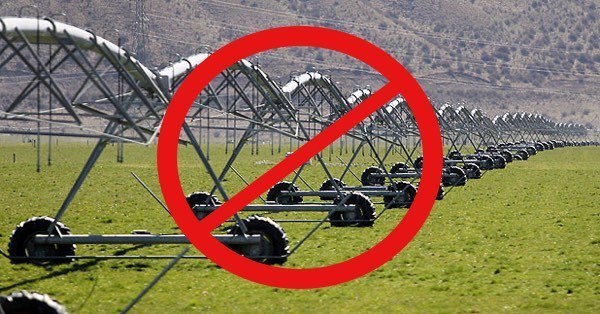The Tourism Export Council today has called for a five-year ban on new irrigation schemes following the dairy downturn. Should irrigation be banned? We don’t think so, but neither should irrigation be propped up by government funding. Each project should stand and fall on its own merits.
Tourism finds its voice
The Tourism Export Council is now actively campaigning for swimmable rivers. It is fantastic to have a business voice backing the call for swimmable rivers, a cause that has been championed by the Morgan Foundation. For a long time the conversation around water quality has been between environmental groups and local communities arguing for clean water on one side and farming on the other saying it is too expensive. The involvement of tourism demonstrates that clean water has a tangible economic benefit that needs to be recognised.
Over summer the Tourism Export Council funded the Choose Clean Water tour. This project filmed stories from around the country on water quality, and is gathering signatures for a petition, which will be presented to Parliament later this month. Now the Council is calling for a five-year ban on irrigation schemes in light of the dairy downturn.
Any sort of ban is usually not a great idea. If an irrigation project stacks up on all counts – and that should include environmental – then it should go ahead. The real problem isn’t irrigation per se, the problem is that the government is tilting the playing field towards irrigation proceeding when there is no reason for them to be involved.
Government subsidises irrigation three times over
Not only does the Government subsidise irrigation – it does so three times over. The first is the $25m Irrigation Acceleration Fund – a fund to help pay for irrigation proposals to be developed. Then there is the $400m Crown Irrigation Investments Limited, which invests in developing actual irrigation projects. Finally we understand that under recent Government proposals the new $100m ‘Fresh Water Clean Up Fund’ can be used to invest in irrigation schemes where there will be environmental benefits.
This last revelation is particularly shocking and completely inappropriate – even the Government’s fresh water clean fund will be used to fund irrigation. Without strong controls over land use, new irrigation projects could well make our fresh water problems worse. What other industry receives this kind of taxpayer help?
There are three arguments put forward for the Government pouring money into irrigation projects. We have previously talked about why they don’t stack up, and nothing has changed since then. We’ll briefly revisit them here:
Farmers don’t sign up beforehand – many businesses face this problem launching a new product, which is why they lose money initially. Instead of subsidising late adopters, latecomers should be charged more to encourage getting in early.
It is good for regional development – this is far from proven, as the benefit of irrigation largely accrues to farmers in the form of tax-free capital gain on land value. The Government likes contestable funds – why not put irrigation up against other regional development projects to see what the return is like?
It is good for the rivers – in some cases this may be right. However, it is only true because the rivers have been so degraded by cutting down trees and farming animals on the land in the past. This has led to rivers becoming warmer and loaded up with sediment and nutrients, all of which increases algae growth.
There is a simple solution for this – government can contribute for the environmental benefits from irrigation but commercial water users should also pay their share. They should contribute for the use of water – a public resource which apparently nobody owns – and the environmental damage done as a result of using that water.
If this were the case, there would be a large pool of funds that could be used to fix our rivers and lakes. Some of that money could potentially be used to cover the environmental benefits of irrigation projects.
Without this crucial change the current Government proposals look like a sop to improving fresh water quality, while continuing to subsidise pollution.

